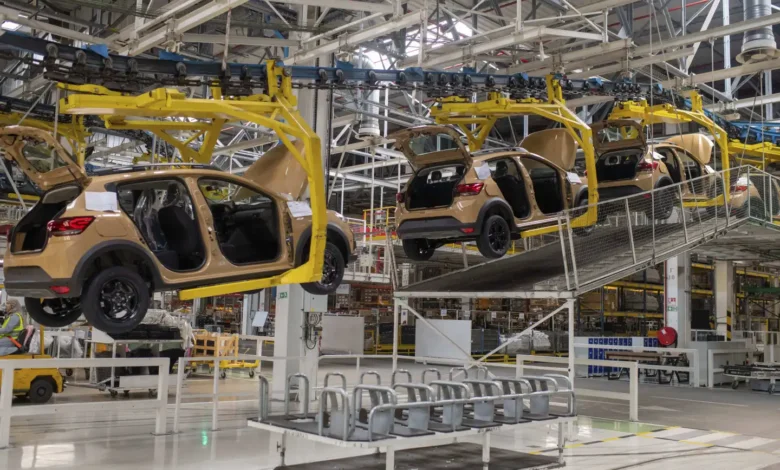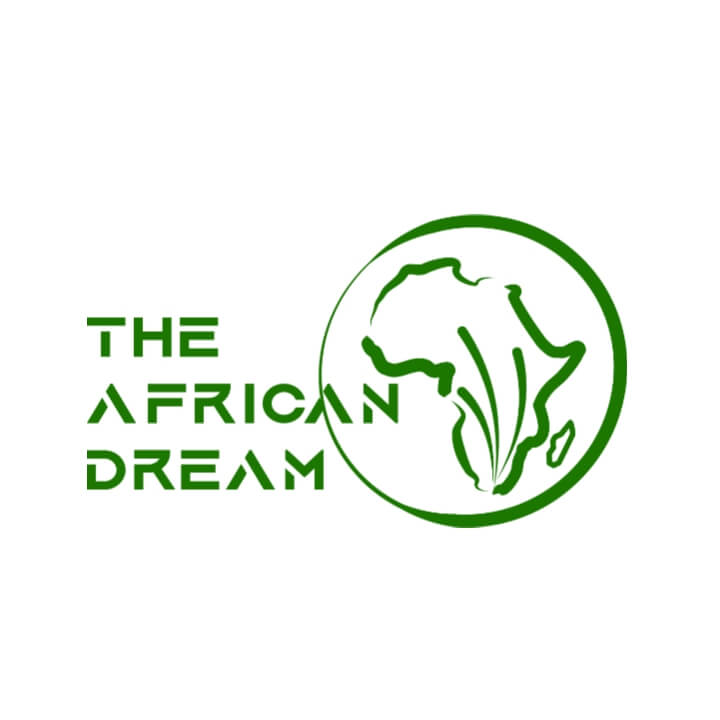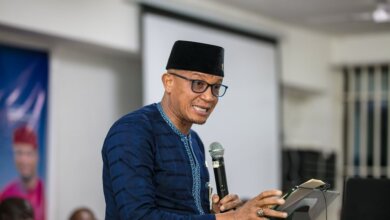
A train that travels from rural northern Morocco to a port on the Mediterranean Sea carries no passengers. Three times a day, it brings hundreds of cars stacked bumper to bumper from a Renault factory outside Tangiers to vessels that transport them to European dealerships.
Business incentives and investing in infrastructure like the freight railway line have allowed Morocco to grow its automotive industry from virtually non-existent to Africa’s largest in less than two decades. The North African kingdom supplies more cars to Europe than China, India or Japan, and has the capacity to produce 700,000 vehicles a year.
Moroccan officials are determined to maintain the country’s role as a car-making juggernaut by competing for electric vehicle projects. But whether one of Africa’s few industrialization success stories can stay competitive as worldwide auto production transitions to EVs and increasingly relies on automation remains to be seen.
More than 250 companies that manufacture cars or their components currently operate in Morocco, where the auto industry now accounts for 22% of gross domestic product and $14 billion in exports. French automaker Renault, the country’s largest private employer, calls Morocco “Sandero-land” because it produces nearly all of its subcompact Dacia Sanderos there.
Unencumbered by many of democracy’s checks and balances, the government tells companies looking to outsource production to cheaper locales they can get approval for new factories and complete construction in as little as five months.
“We didn’t export one car 15 years ago. Now it’s the first exporting sector in the country,” Minister of Industry and Trade Ryad Mezzour said in an interview with The Associated Press.
Mezzour said Morocco has distinguished itself from other outsourcing destinations by expanding its ports, free trade zones and highways. The government offered subsidies of up to 35% for manufacturers to put factories in the rural hinterlands outside of Tangiers, where Renault now produces Clios as well as Dacia Sanderos, Europe’s most popular passenger vehicle, and soon plans to start manufacturing hybrid Dacia Joggers.
Chinese, Japanese, American and Korean factories make seats, engines, shock absorbers and wheels at the Tangiers Automotive City, a large campus of car parts manufacturers. Stellantis produces Peugeots, Opels and Fiats at its plant in Kenitra.
Devoting immense resources to developing and maintaining an automotive sector that could employ a young and growing workforce was part of a 2014 industrialization plan. To create jobs, Mezzour said that he and his predecessors have focused on offering more than cheap labor to foreign automakers looking for new places to build cars and produce parts.
Major automakers pay unionized factory workers less in Morocco than they do in Europe. But even with salaries one-fourth the size of France’s 1,766.92-euro ($1911.97) monthly minimum wage, the jobs pay more than the median income in Morocco. The industry employs 220,000 — a small but sizable chunk of the more than 200,000 agricultural jobs the country is losing annually amid a six-year drought.
Like in many African countries, Morocco’s domestic market for new cars is small. Less than 162,000 vehicles were sold there last year. The government’s success in building an automotive industry nevertheless has made cars the tip of the spear as Morocco works to transform its largely agrarian economy.
“I have one simple priority — not exports or being competitive. My job is to create jobs,” Mezzour said.
Abdelmonim Amachraa, a Moroccan supply chain expert, said the spending on infrastructure and training skilled workers puts the industry in a good position to lure investment from automakers looking to build out their electric vehicle supply chains.
Moroccan officials have sought investment from both East and West, trying to lure industry players from China, Europe and the United States as they now race to produce affordable electric vehicles at scale. China’s BYD — the world’s largest electric vehicle maker — has at least twice announced plans to build factories in the country that have stalled before starting.
“The important question is what can a small country do in this world,” Amachraa said, noting how rapidly global car manufacturing was changing. “We have this ability to coexist with Europe, Africa, and the United States when a link can’t be found between China and the United States.”
As Europe works to phase out combustion engines over the next decade, automakers like Renault are preparing to adapt in Morocco. Mohamed Bachiri, the director of the Renault Group’s operations in the country, said the company’s record of success in Morocco makes it an attractive destination for others to invest, particularly in EVs.
He said the industry is likely to continue growing because Morocco’s “integration rate” — the percentage of parts that carmakers can source domestically — has steadily risen to more than 65%. The country also has a competitive advantage by having the experienced and skilled autoworkers that some other outsourcing destinations lack, Bachiri said.
“We’re predisposed to manufacturing cars for customers in our sphere. And the day they decide they need electric vehicles, we will,” he said.
The government has bankrolled public-private partnerships like a Renault-managed academy to train technicians and managers. Compared to comparable markets, Morocco’s political climate and proximity to Europe made it a safe investment, Bachiri said.
“It’s like being on an island next door,” he said, noting instability in neighbouring countries throughout North and West Africa.
However, as the United States and European countries encourage their automakers to “onshore” electric vehicle production, it’s unclear how Morocco will fare. The country has long prided itself on being a free market that eschews tariffs and trade barriers but finds itself squeezed as countries vying for EV production advantages enact policies to protect their domestic automotive industries.
Western governments that have long pushed developing countries to embrace free trade are now enacting policies to boost their own EV production. France and the United States both passed tax credits and incentives last year for consumers who buy electric vehicles manufactured in Europe or North America, respectively.
Though the U.S. incentives can extend to Morocco because the countries share a free trade agreement, Mezzour said they complicated the global supply chain and sometimes made his job more complicated.
“We’re living in some kind of new age of protectionism,” Mezzour said. “We’re living in instability in terms of trade rules that makes it more difficult for countries like Morocco that invested heavily in open, free and fair trade.”
Source: AP

This article is published by either a staff writer, an intern, or an editor of TheAfricanDream.net, based on editorial discretion.





